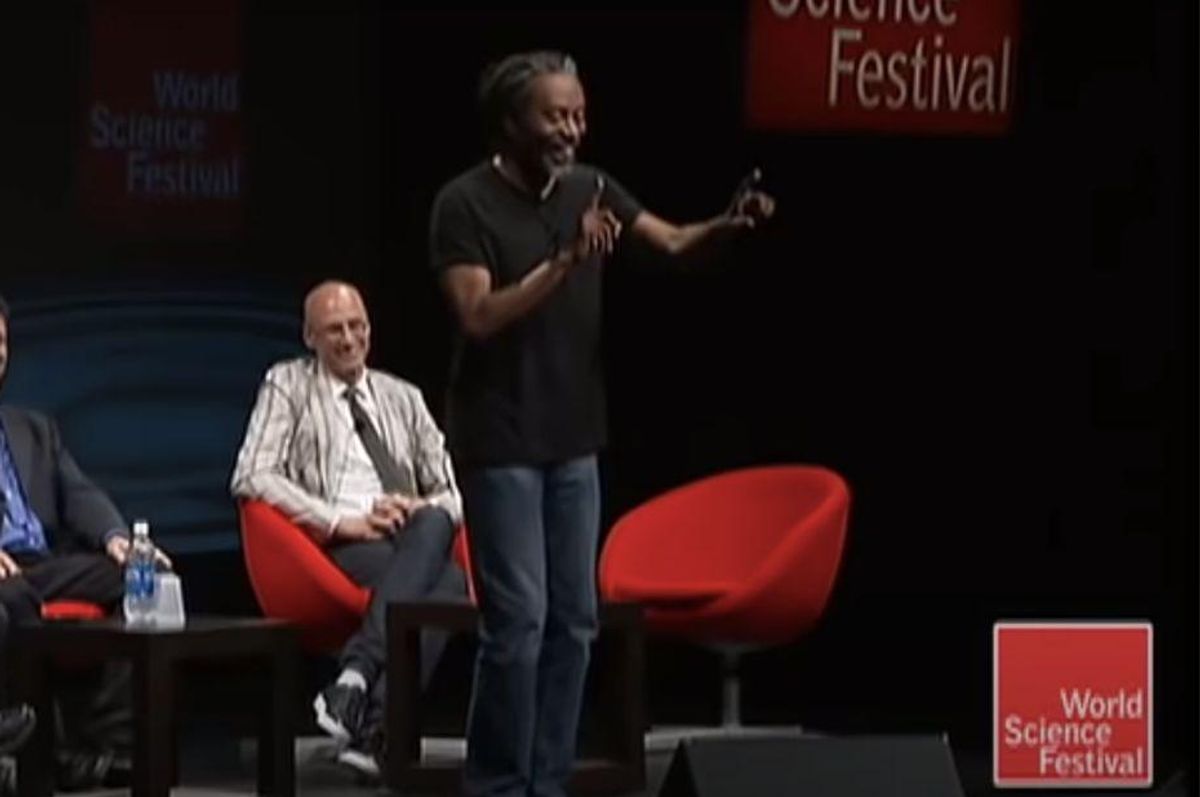
Bobby McFerrin is best known for his hit song “Don’t Worry Be Happy,” which showcased his one-man vocal and body percussion skills (and got stuck in our heads for years). But his musicality extends far beyond the catchy pop tune that made him a household name. The things he can do with his voice are unmatched and his range of musical styles and genres is impressive.
The Kennedy Center describes him: “With a four-octave range and a vast array of vocal techniques, Bobby McFerrin is no mere singer; he is music’s last true Renaissance man, a vocal explorer who has combined jazz, folk and a multitude of world music influences – choral, a cappella, and classical music – with his own ingredients.”
McFerrin is also a music educator, and one of his most memorable lessons is a simple, three-minute interactive demonstration in which he doesn’t say a single word.
In a video shared by the World Science Festival, McFerrin demonstrates the power of the pentatonic scale by prompting the audience to sing specific notes when he stands in specific places on stage. With just his body movements and a handful of sung notes, he turns the audience into an instrument, showing them how intuitive the pentatonic scale truly is for all of us.
The pentatonic scale has five notes per octave instead of the seven we often think of as standard (the heptatonic scale). The pentatonic scale is thought to have been used since pre-ancient times and is found in nearly every culture in the world. Its beauty is in its simplicity; many folk songs have been composed using only the notes in this scale.
Perhaps that’s why it seemed so natural for the people in the audience to know what notes to sing when McFerrin moved without him telling them which notes to sing beyond the first few. It’s a delightful demonstration of how music connects us in an innate, inexplicable and seriously incredible way.
Watch the demonstration from the “Notes & Neurons: In Search of the Common Chorus” event in 2009:
